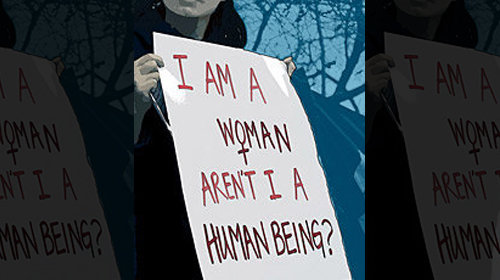
While we’re all celebrating the 40th anniversary of the passage of Title IX of the Education Amendments of 1972, and oh, we are, let’s also take a moment to celebrate the 20th anniversary of another excellent law passed in 1992: The Women in Apprenticeship and Nontraditional Occupations Act.
This week, the U.S. Department of Labor used WANTO to award to improve women’s participation in apprenticeships in industries such as advanced manufacturing, transportation, construction, and new and emerging green occupations. Several of the grantees, , have extensive experience moving women into construction – a male-dominated field. Each of the six grantees will place at least 100 women in apprenticeships over the next two years.
Nontraditional fields for women pay comparatively well for jobs that usually require only a high school degree; they can involve more flexible work schedules than an office; and in apprenticeship programs, workers are paid while they train. Once the training is over, these jobs pay well: In 2011, the for all carpenters was $630, electricians earned $857, and plumbers/pipefitters got $851.
These numbers are much higher than the for women with a high school degree and no college, which was $543 per week in 2010. In fields where women are concentrated, they than the average woman with a high school degree: Female cashiers earn $366, retail saleswomen get $421, and nursing and home health aides earn $427 per week. This discrepancy is not caused by women, for their own reasons, choosing jobs that just happen to be low-paying. As the Institute for Women’s Policy Research last month, “female elementary and middle school teachers earn 91.3 percent of their male counterparts’ earnings and female nursing, psychiatric, and home health aides earn 88.8 percent, despite women comprising over 80 percent of workers in both occupations.” Women who choose the fields targeted by WANTO have the opportunity to make not just more money, but potentially much more.
Between nontraditional jobs’ higher earnings and their flexible schedules, these are good jobs for both men and women. But unfortunately, underrepresentation of women in nontraditional fields is a self-reinforcing problem. When there are few women in a field, can be more easily used to drive away the few women who try to enter. Additionally, when there aren’t many female role models in a field, parents and counselors are more likely to steer young women away from that field, even unconsciously. And in traditionally male occupations, where recruitment is conducted largely by word of mouth, men recruit their male friends and the workforce remains a self-perpetuating male-dominated workplace. As a result, women remain of all workers in such nontraditional fields today.
The history of Title IX demonstrates that civil rights legislation can break new ground not only by changing the legal landscape and giving unprecedented access to new areas for women; such legislation can also be groundbreaking by changing preconceptions about what women are good at, capable of, and interested in. WANTO was an important starting point when it was signed by President George H.W. Bush twenty years ago. Now it’s time to expand this and other programs that promote women’s participation in these lucrative fields, like the Department of Labor’s initiative. Good luck to all women in nontraditional fields, and especially to this year’s WANTO grantees!
Learn more about women's equality in the workplace: Sign up for breaking news alerts, , and .

